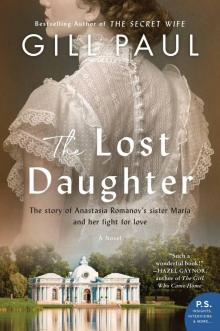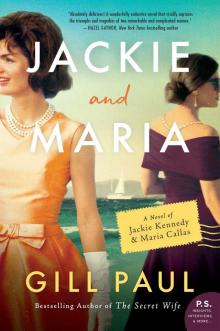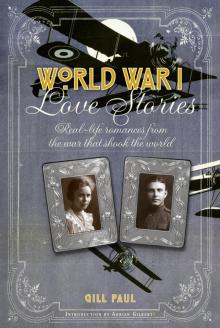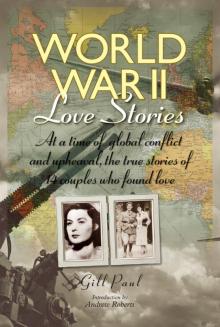The Lost Daughter Read online
Page 20
He shook his head. “No, there is nothing. Our doctor will keep her comfortable until the end.”
Val shivered in the afternoon heat. She couldn’t accept it; she wouldn’t.
They turned onto a busy tree-lined avenue whose buildings had decorative facades and ornamental motifs. On one corner there was an enormous cathedral with grand frontal archways and multiple domes in green and gold.
“This is the Russian area,” her cousin said. “It’s called Daoli.”
It looked Russian, not that Val was an expert. One shop advertised stolle and piroshki, both types of pies, and the cars were Ladas and Volgas. The architecture was grand; clearly the people who lived there had money.
The cousin turned his wagon into a side street and pulled on the reins to bring the donkey to a standstill.
“There!” He pointed through a wrought-iron gate toward a mansion set in extensive grounds. “That was your father’s house.”
Val peered in full of curiosity; she hadn’t been expecting that. There were pillars alongside the entrance portico and tall, elegant windows over three floors. A curved driveway was flanked by carefully planted exotic flowers and shrubs, and a shiny racing-green sports car was parked outside.
“Good grief!” she exclaimed. He must have been one of the richest people in town. How had he come to marry her mother, who was one of the poorest? That seemed like an unequal match if ever there was one.
Chapter 31
I MET HIM IN A PARK,” HA SURAN SAID IN ANSWER TO Val’s question. “He was sitting on a bench crying. That was in 1925, when I was just sixteen. He spoke only a few words of Chinese while I spoke next to no Russian, but my heart went out to him. I sat down and put my arm around him and he clung to me, sobbing with such misery as I had never heard.”
“Why was he sobbing?” Val was mystified. She had never heard her father cry.
“At the time I supposed he was homesick, but later I wondered if he had been crying over that Russian woman, the one he was in love with. Isn’t it strange the moments your fate turns upon? I could have walked straight past without stopping; I could have comforted him then hurried on my way; but instead I went home with him that night and became his housekeeper and concubine.” She smiled at Val’s expression. “You look shocked! I can’t explain except to say that he moved me. From the moment I saw him, I wanted to take care of him.”
Ha Suran seemed more animated than earlier. Her energy levels clearly fluctuated according to the rhythm of the illness inside her.
“Did he tell you anything about his background?”
“First I had to learn Russian,” Ha Suran explained. “That took a while. But in the meantime I worked out a few things for myself. The house was always full of valuable paintings, icons, jewels, fox furs, silver samovars, and other precious items, which were there one day and gone the next. I realized he was selling luxury goods that had been stolen from the abandoned estates of Russian aristocrats. Hundreds of White Russians fled across the border into Manchuria during the civil war. Your father raided their houses then brought the goods to Harbin to sell back to them.”
Val was astounded. It had crossed her mind that her father might have made his fortune by criminal means, but she hadn’t truly believed it. “Did he ever get caught?” she asked.
Ha Suran nodded. “I know he was a wanted man. He fell foul of the regime in Russia somehow, and by the time I met him he couldn’t go back there anymore. There was a sadness deep in his soul—and, fool that I was, I loved him for it.”
Val was having trouble reconciling this lovestruck thief with the bullying father she had known. It was as if they were talking about different people.
There was silence between them for a while. Nicole had gone to market with Li Suran, and the only sound was the clucking of chickens in the yard and the buzzing of a persistent bluebottle.
“If he didn’t love you, why did he take you to Australia with him?” Val asked.
“Maybe it was easier to get a visa if you were a married couple. Maybe he was lonely.” Ha Suran shrugged. “We learned English together from a tutor he hired, who used to come to the house two evenings a week, then we got married in the Orthodox Church. It was all done in a rush, because he did not like the Chinese warlord Zhang Xueliang who took over Manchuria in 1929. I think he wanted to tax your father’s business interests. So he sold the house and car and packed up in a hurry.”
“Why Australia? Why not America? Or somewhere in the Far East?”
Again Ha Suran wasn’t sure. “I suppose it’s the first country that accepted him. I know other Russians from Harbin traveled to Sydney, so it must have been straightforward to get visas.”
“What a huge move for you both! And how heartbreaking to leave your family.”
Ha Suran didn’t sound bitter as she answered, only weary. “I went with my husband because he needed me, and I trusted he would always take care of me. But I was wrong.”
* * *
Later, when Ha Suran was too exhausted to talk anymore, Val sat beside her and described her life in Sydney, trying to glue together past and present.
“Do you remember my schoolfriend Peggy?” she asked. “The one with the freckles?” Ha Suran gave a slight nod. “She’s still my best friend today. She helped when I left Tony. In fact, she warned me not to marry him in the first place. I should make a mental note always to listen to Peggy’s advice, because she is clearly a better judge of character than me.”
She described her marriage, and Ha Suran surprised her by saying, “It sounds as though Tony is an unhappy man, like your father.”
Val had never thought of Tony as unhappy, but she saw in a flash that he was. He was forever complaining that someone younger had been promoted over his head at the office, that the golf club had admitted new members who dressed too scruffily, or that their neighbors had a better car than him. His parents were constantly comparing him to his brothers, who according to them were much more successful. That feeling of not being good enough pervaded Tony’s character and made him despise Val because she had been needy and desperate enough to marry him. All this came to her in a moment and she blinked in recognition.
She told Ha Suran about the furious rows since she left Tony and the way he had snatched her inheritance, then asked, “I don’t suppose you know what Dad kept in his safe deposit box, do you?”
Ha Suran shook her head. “He would never have shared that kind of information with me.”
Val remembered the photos that had been in her father’s old camera. She’d brought them with her, in a pocket of the suitcase.
“Nicole, darling, could you bring me those old photos?” she asked. Nicole was helping Li Suran to stir dinner in the big cooking pot, but she ran to find the pictures.
Ha Suran flicked through the first four shots without comment.
“I know they’re not very clear, but do you think these could be Dad’s family?” Val asked.
Ha Suran shook her head. “He never told me anything about his family. I don’t know if he had sisters, or who his parents were.” She squinted at one shot where the faces were slightly clearer. “I can’t see a resemblance.”
And then she came to the three young men whose names were written on their pictures—Konstantin Ukraintsev, Peter Vasnetsov, and Ivan Skorokhodov—and stopped at the last one.
“Ivan Skorokhodov. That was your father’s Russian name. He changed it by deed poll to Irwin Scott after we arrived in Sydney.”
Val was stunned. “Really? Is that him?”
The picture was fuzzy, but the subject had dark hair and a slim figure, like her father. Ha Suran strained to lift herself on an elbow so she could hold it to the light filtering through the back door. “I’m not sure. I think your father had a uniform like this—I remember seeing it—but he looks different here. Younger maybe.”
Val took the picture to the doorway and examined it in daylight. “It must be him. He wasn’t bad-looking as a young man. I wonder if he was still li
ving in Russia when this was taken?”
“He came from Sverdlovsk,” Ha Suran said. “It used to be called Ekaterinburg. The town where the Romanovs were killed. He was obsessed with them.” She lay down again and continued. “He said he passed the house where they were being held on his way to work in the morning and sometimes caught a glimpse of them in the yard. He used to worry about them because everyone knew they were living on borrowed time.”
“Where did he work?”
“Some kind of factory. But the workers were conscripted into the Red Army after the Revolution. They had no choice.”
Val tried to imagine her father back then, when he would have been in his late teens. What kind of person was he? What had made him so bitter? She described her visit to the nursing home and her father repeating “I didn’t want to kill her” and “There was so much blood.” “Do you think he might have been forced to kill some woman while he was in the army?” she asked.
Ha Suran shook her head straightaway. “Your father had many faults,” she said, “but I can’t imagine him killing a woman.” She was quite adamant.
Val felt relief wash over her. It would have been awful to be the daughter of a killer. At least that was one less thing to worry about.
* * *
During the mornings, while Ha Suran was resting, Val took Nicole to explore the town of Harbin. She loved the multicultural streets where European-style architecture gave way to glittering Chinese temples and extravagant Russian cathedrals. Nicole liked crossing the bridge over the Songhua River to Sun Island, where deer ran wild, tame squirrels ate nuts from the hands of visitors, and a colorful flower garden was planted according to the signs of the zodiac. The weather was humid, not as hot as Sydney in summer but perfect for exploring.
In the afternoon, Nicole played with Li Suran or helped her to prepare the main meal, while Val sat by Ha Suran’s bedside. Evenings were spent eating dinner with any members of the extended family who dropped by, making conversation that was stilted because of the language barrier. The mats proved comfortable enough to sleep on, but Val found the hole-in-the-ground toilet and hosepipe shower more challenging.
The days flew past in a blur: one moment they had most of the three weeks in front of them, then somehow it was the final few days.
It was hard to contemplate leaving, but Val comforted herself that Ha Suran seemed better than when she had arrived. The sickly yellow of her skin and eyes was less intense; she could sit up for short periods, and talk for longer without getting tired. Val took photographs of everyone and showed Li Suran how to use the camera so she could take some of the three generations together: mother, daughter, and granddaughter.
“I’ll send you copies as soon as I get back,” she promised.
On the last day, she felt like crying every time she looked at Ha Suran. She mourned for all the years they had lost. How different her life would have been if she’d had a mother when she was a teenager.
“Do you remember the song about the two tigers, Mom?” she asked, the memory coming back to her.
Ha Suran began to sing in a pure voice that made her seem twenty years younger, and suddenly Val felt as though she was Nicole’s age again. Tears pricked her eyes. All the love Ha Suran had given her as a child was still there. She’d gotten her mom back.
When the song ended, Ha Suran clutched Val’s hand. “I wish I could make you happy,” she said. “All I ever wanted was for you to be happy, but I can tell you’re not.”
Val felt choked and couldn’t speak for a few moments. “I’ll get there,” she said at last. “It’s going to be a long haul, but I’ll get there.”
Chapter 32
Leningrad, March 1937
PETER’S OFF-DUTY HOURS WERE OFTEN CONSUMED BY MEETINGS: Communist Party meetings, trade-union meetings, and—worst of all—Komsomol meetings when workers were invited to speak out against their coworkers and a commission decided on their guilt or innocence.
“Grigory Yezhov was summoned today,” he told Maria one evening, after checking that none of the children were in earshot. “If they can accuse him, none of us are safe.”
“What is he accused of?” Maria knew the man and had always thought him a drearily staunch Communist.
“Yuri Yermilov overheard him saying he doubts we can achieve the targets in the new Five Year Plan. Now, he might well have said that; we all know they are absurd. But it’s hardly treason, is it?” He looked gray and exhausted.
“What did the committee decide?”
“He got a reprimand.” Peter rubbed his cheek with his knuckle. “Do you think I should have spoken on his behalf? I would have if I thought he faced jail.”
“It’s so petty,” Maria sighed. “I don’t like the Russian people anymore. This regime brings out the worst in everyone. But I agree, it’s better not to speak up or you could find yourself targeted next.”
All over town, portraits of a moustachioed Stalin gazed down at them. His image hung on the outside of shops and factories, on the walls of every office, and in each school classroom. Children sang songs thanking him for the good life he had brought them, and ubiquitous loudspeakers around town blared out his praises, but Maria and Peter were alarmed by the mass arrests under his premiership.
At first it had been the neighbor in their block who tried to cross into Finland, then several factory colleagues disappeared after a purge of the Party in 1933. More recently there had been a purge of any remaining kulaks. There was never any warning. Maria arrived in the morning to find coworkers missing and no explanation offered. The woman who’d lost her hand in the conveyor belt disappeared; so did the man who had been angry with Maria for telling his wife where to find him.
The secret police, known as the NKVD, always came in the middle of the night, the brakes of their black vans screeching on the road outside, followed by a loud banging on the door. Maria lay awake listening as a couple on the first floor were arrested one night.
“We’ve done nothing wrong!” the woman was screaming as they were led away. “We love the Party. We love Stalin.”
They must have done something, Maria persuaded herself. We just don’t know what it was.
She still kept her card files of people who were looking for missing family members, but was wary when new folk approached her. Every apartment block and workplace had informers who would run to the NKVD at the slightest provocation. They might be jealous because you had a better apartment or a more pleasant job than them; perhaps they thought you had not been effusive enough when greeting them in the street. Maria did her best to be friendly with everyone, as had always been her way, but you never knew who were your true friends and who were secret enemies. As the Komsomol meetings proved, one could turn into the other in the blink of an eye.
* * *
Stepan turned eighteen in 1937 and left school to study at the Leningrad Institute of Foreign Languages. He chose English as one of his subjects and Maria was able to help him practice. It was the language she and her family had always spoken at home, and she was as fluent in it as she was in Russian. Peter did not speak a word of English, so sometimes they teased him.
“Look who has soup on his face,” Maria said to Stepan in English over the dinner table.
He glanced at his father and chuckled to see a thin moustache of soup on his top lip.
“What is it? What are you looking at?” Peter asked, and pulled a comic face, making them laugh even harder.
Stepan was still a serious boy, but Maria’s second-eldest, Irina, was a chatty, fun-loving girl who seemed immensely popular with her peers. She was forever meeting groups of friends to walk along Nevsky Prospekt, peering at the goods for sale in luxury shops, or to sit by the canals chatting. She did not yet have a boyfriend but seemed very interested in the opposite sex and acted with girlish coyness if one of Stepan’s friends came to collect him on the way to the Institute.
Eleven-year-old Katya reminded Maria of herself. She was stuck between the elder two and the younger
two and spent a lot of time on her own, until she struck up a friendship with Raisa’s daughter Galina, who was the same age. Maria was wary of Galina coming to their apartment, since she knew that every last detail of life in their household would be reported back to Raisa, and there was no question in her mind that Raisa was an NKVD informer. She was exactly the type they would target because she would love the self-importance.
Mikhail and Yelena were still young, aged nine and five respectively, and they were bonded at the hip, spending all their time outside school hours in each other’s company, endlessly able to invent new games to amuse themselves. They had been the easiest to raise, Maria mused. Perhaps it was because she had become relaxed as a parent.
She often wondered what Pavel would have been like had he lived. His character would have been shaped by the suffering brought by his hemophilia, just as Alexei’s had been. Her little brother had developed a stoicism that belied his young years. Maria knew that if she had been nursing Pavel, she would not have been able to work. In fact, she doubted she would have had any more children. Her life would have taken an entirely different path.
* * *
In the autumn of 1937, workmen arrived to redecorate the apartment block. Walls were to be replastered and painted, creaking floorboards nailed down, and the plumbing and electrics overhauled. At last they would have a bathtub with hot running water; no more staggering to the bathroom with a pot of water boiled on the stove.
Only one thing worried Maria: the workmen were to be allowed access to their apartment while they were at work. She didn’t like the thought of strangers poking through her possessions, and she was particularly nervous that the bag of jewels she had sewn into her clothing and brought with her from Ekaterinburg might be discovered in its hiding place beneath the floorboards.
“Do you think we should move it?” she asked Peter.
He knelt to look under their bed and decided there was a chance the workmen might notice that one floorboard was looser than the rest and decide to fix it. “Where else could it go?” he asked, glancing around the room. There weren’t many options.

 The Collector's Daughter
The Collector's Daughter The Lost Daughter
The Lost Daughter Jackie and Maria
Jackie and Maria The Affair
The Affair Love...Maybe
Love...Maybe The Secret Wife
The Secret Wife No Place For a Lady
No Place For a Lady Another Woman’s Husband
Another Woman’s Husband World War I Love Stories
World War I Love Stories World War II Love Stories
World War II Love Stories